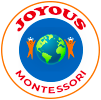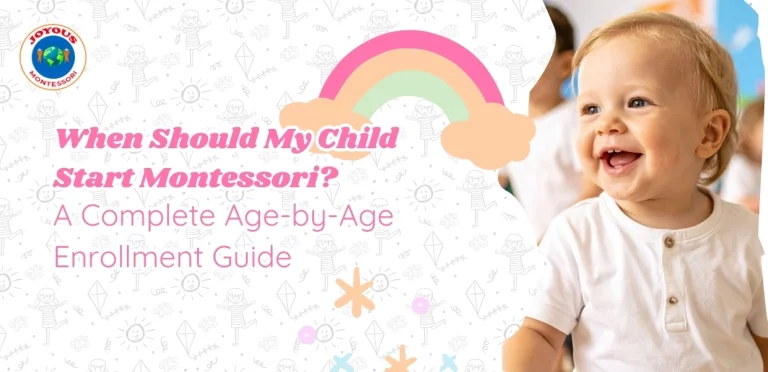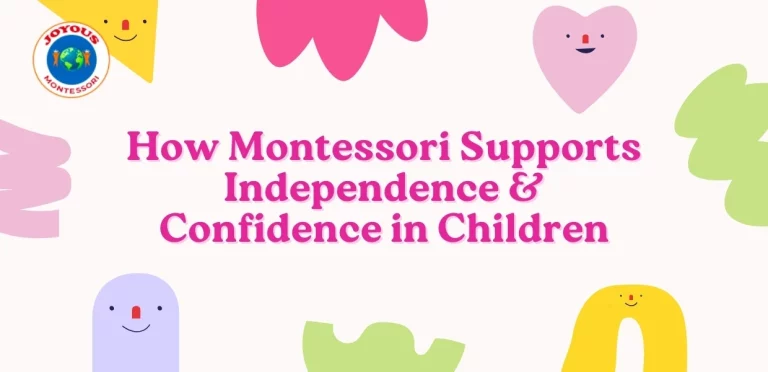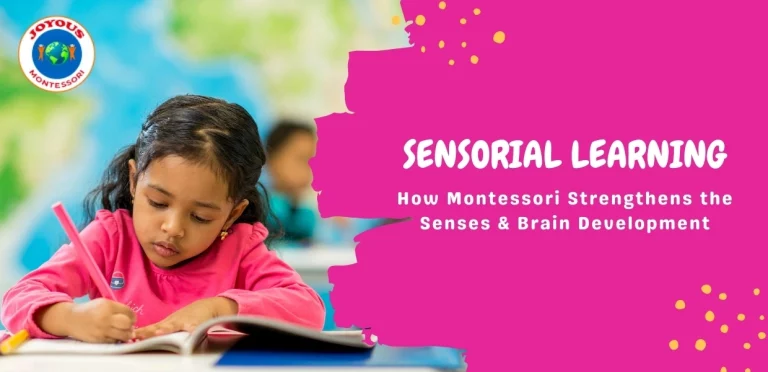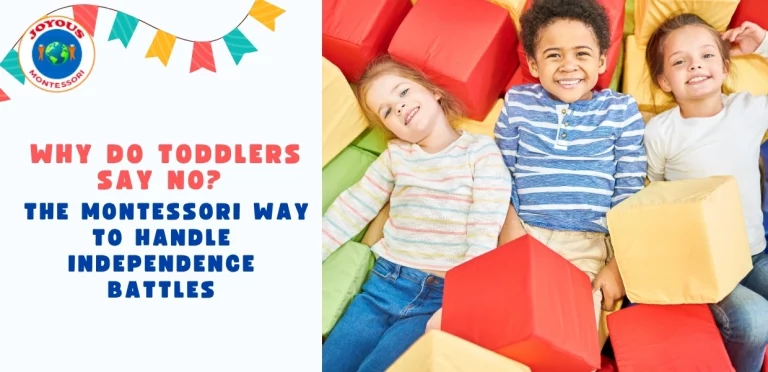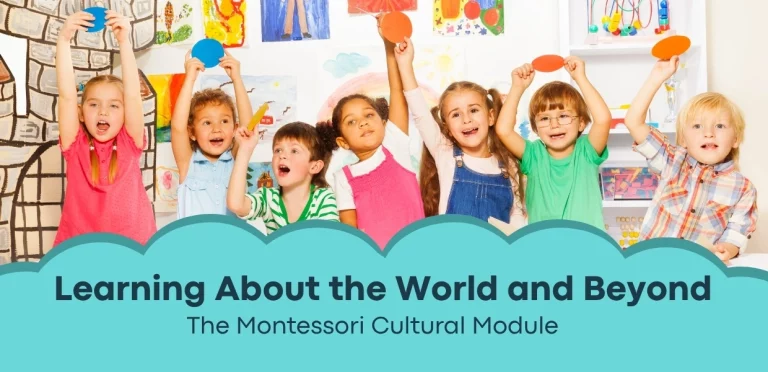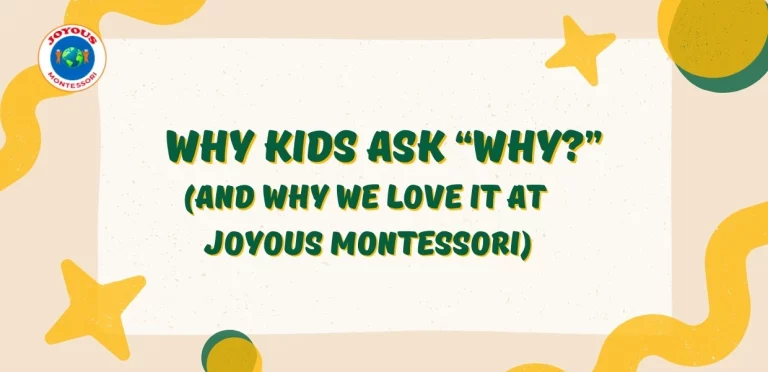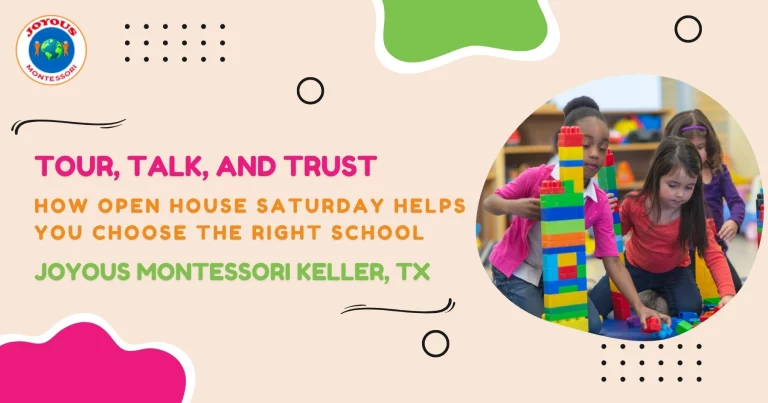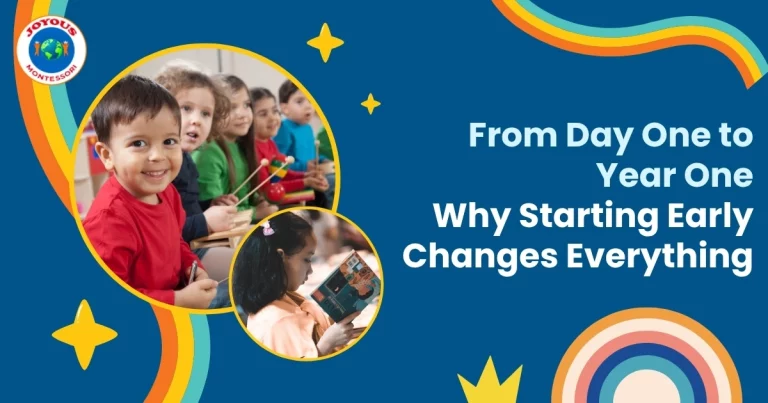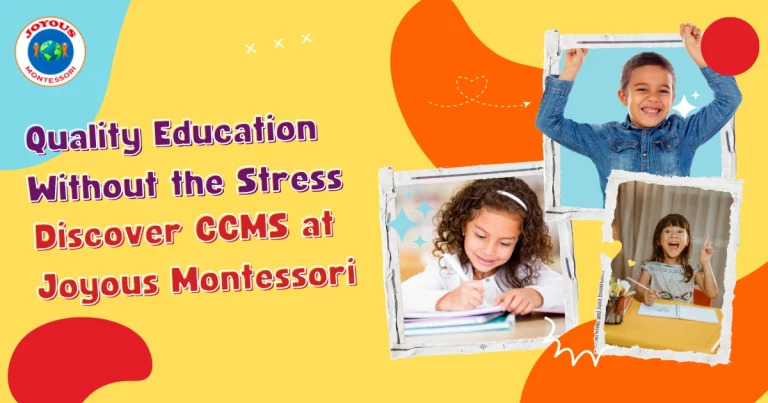Blog
February 4, 2026
Comment (0)
How Montessori Supports Independence & Confidence in Children Every parent wants their child to grow into a confident, capable, and independent individual. In early childhood, these qualities...
January 8, 2026
Comment (0)
How Montessori Supports Independence & Confidence in Children Every parent wants their child to grow into a confident, capable, and independent individual. In early childhood, these qualities...
December 9, 2025
Comment (0)
Sensorial Learning: How Montessori Strengthens the Senses & Brain Development Children learn about the world first through their senses, touching objects, observing colors, smelling familiar...
November 13, 2025
Comment (0)
Why Do Toddlers Say No? The Montessori Way to Handle Independence Battles Every parent has been there: you ask your toddler to put on their shoes, and they look you straight in the eye and say, “No.”...
October 24, 2025
Comment (0)
The Montessori Cultural Module: Learning About the World and Beyond The Cultural Module is one of the five key areas of Montessori education, alongside Practical Life, Sensorial, Mathematics, and...
September 2, 2025
Comment (0)
If you’ve ever spent time with a preschooler, you know the question that seems to pop up every five minutes: “Why?” Why is the sky blue? Why do I have to eat vegetables? Why do birds fly? Why can’t I...
August 5, 2025
Comment (0)
Tour, Talk, and Trust: How Open House Saturday Helps You Choose the Right School | Joyous Montessori Keller, TX As a parent, choosing the right early learning environment for your toddler can feel...
July 15, 2025
Comment (0)
If you’re a parent, you know how fast the early years fly by. One minute your little one is learning to walk, and the next, you’re thinking about preschool and kindergarten...
June 25, 2025
Comment (0)
As parents, we all want to give our children the very best start in life—a place where they are nurtured, challenged, and inspired every day. But finding that ideal environment often comes with...
